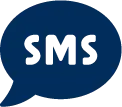Each year, thousands of motor vehicle accidents occur on Alabama’s highways and roads. An accident can be a life-changing event for all parties involved. While no one ever expects to be in crash, but when it does occur, you’ll be happy that you have auto insurance to help you cover the damages.
After you’ve been involved in a crash, the insurance company will try to get you to settle your claim as soon as possible. Like any industry, the insurance industry has their own jargon the average person has never heard of. Before you sign any paperwork, it is crucial that you understand the terminology used in the documentation.
At Citrin Law Firm, we urge all accident victims to seek legal counsel after being involved in a collision. A lawyer can thoroughly review your claim and answer any questions about your legal rights. We have included a glossary of terms that is commonly used by insurance provider that will help you understand your claim.
To have your accident claim reviewed by an experienced lawyer, fill out the Free Case Review form on this page.
Common Auto Insurance Terms
- Automobile Liability Insurance– Coverage that is available if the insured party is liable for the damages, including physical injury or property damage that was caused by the auto accident.
- Collision Insurance- Coverage for property damage that is not covered by comprehensive insurance.
- Comprehensive Coverage- This type of coverage pays for any damages that were not caused by a collision, including theft, natural disasters and animal damage.
- Deductible- The amount of money that the insured agrees to pay the insurance company when they make a claim that is covered by the policy.
- Economic Damages- Quantifiable, out-of-pocket expenses that were incurred from the accident including medical expenses, lost wages and loss of earning capacity.
- Financial Responsibility Law- A law that requires all drivers to have some type of auto insurance. Some states allow motorists to have a bond or cash deposit to show ability to pay for negligent driving as an alternative to having a car insurance policy.
- Liability Coverage- Coverage that pays for damages caused by the actions of the insured.
- Medical Payments Coverage (MP or Med Pay)- This type of coverage pays for medical expenses and/or funeral expenses for the insured individual and passengers in their vehicle, regardless of who is liable for the crash.
- Monetary Threshold- A monetary limit for damages. Injury victims can file a lawsuit to recover economic and non-economic damages associated with the accident.
- Multi-Car Discounts- A discount that the insurance company sometimes offers if you are insuring more than one vehicle under the same policy.
- No-Fault Insurance- This type of coverage allows people to recover economic damages from their insurance company, regardless of who was liable for the collision.
- Non-Economic Benefits- These are damages that are related to loss of life quality, such as pain and suffering, mental anguish and loss of consortium.
- Personal Auto Policy (PAP) – This is the most common type of auto insurance policy. Typically, this covers the insured individual for a personal liability, property damage, medical expenses and uninsured or underinsured motorist coverage.
- Premium- The amount of money charged by an insurance company for coverage.
- Property Damage Liability (PD)- Coverage for the insured if he/she damages another person’s property with their vehicle. This may include damage to another party’s car, buildings, fences, telephone poles, etc.
- Term- The amount of time an auto insurance policy is effective. Most insurance policy terms are for six months to a year.
- Umbrella Policy- This provides coverage for damages that exceed the dollar amount limit of an insurance policy.
- Underwriting- The process that an insurance company uses for determining whether to accept or deny an application. The insurance provider looks at several factors when deciding on an application.
- Uninsured or Underinsured Motorist (UM)- Coverage for damages caused by a motorist that does not have an auto policy or the policy does not provide adequate coverage for the damages.
- Usage- This refers to the purpose that the individual uses their vehicle and this taken into account during the underwriting process.
- Verbal (or Descriptive) Threshold- This refers to the type of injury that a victim must have suffered in order to file a legal claim for the damages.
Andy is the owner and CEO of Citrin Law Firm, P.C. He founded the firm in 1995 with the goal of helping injured people put their lives back together. His passion for protecting injured people has only grown since he opened the doors of Andy Citrin Injury Attorneys, and he has a history of winning numerous multimillion-dollar verdicts and settlements for his clients.


